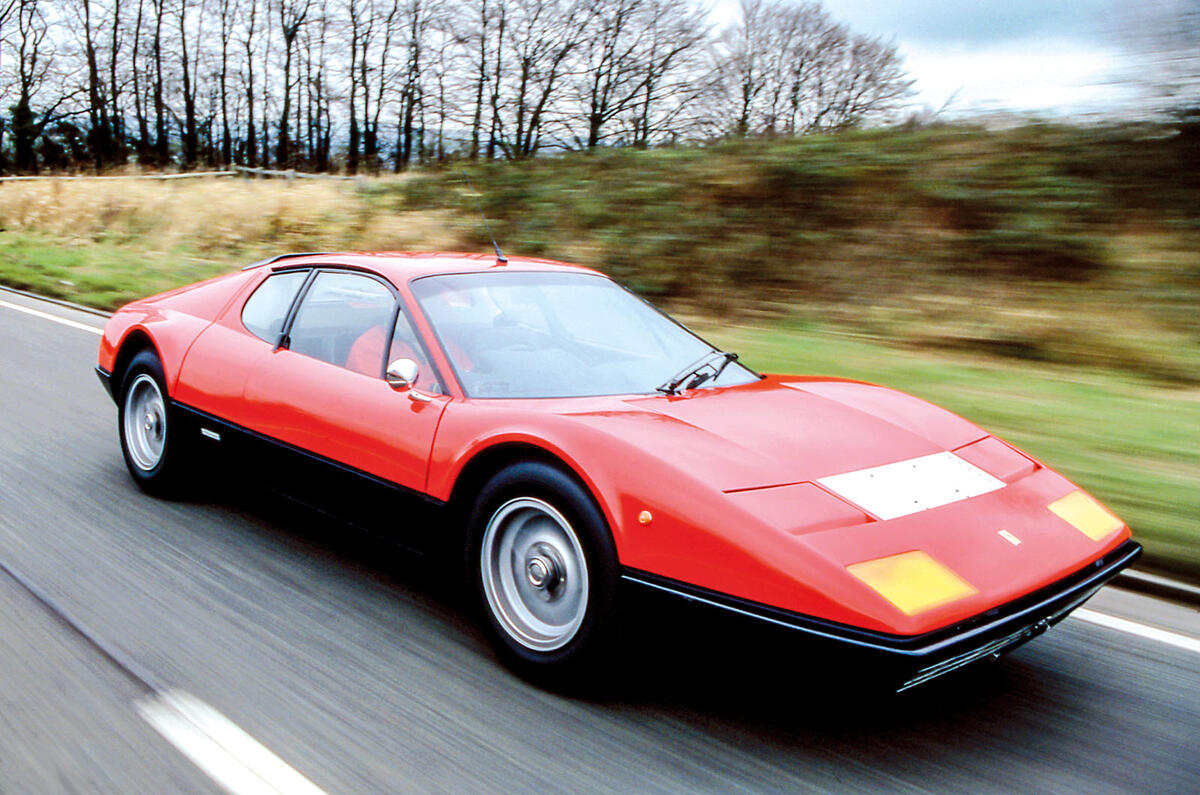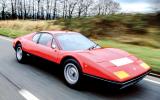In the 6 May 1978 issue, Autocar road tested the Ferrari 512 BB, claimed at the time to be the fastest road car in production.
Our testers were slightly disappointed to tease a top speed of only 163mph from the Berlinetta Boxer’s 4942cc, 12-cylinder engine, compared with Maranello’s claimed 188mph.
“Try as we might, we could persuade no more than a mean 163mph at 5975rpm from the beast, while the car’s electronic speedometer read 174mph,” they reported.
The performance generated a torrent of responses from readers, some of whom shared Autocar’s disappointment at the maximum speed its testers had achieved.
David Steinberg of London wrote: “I own a 1974 365 GT4 BB and have seen 195mph on the clock on the Stuttgart-Basel motorway at 6am.”
GH Jones of Dollis Hill reckoned we’d made a mistake: “I fail to believe this figure of 163mph is correct, as other road tests show figures of 197 and 188mph. You state the acceleration from 0-60mph as 6.2sec, whereas another magazine says it takes only 5.1sec. How can your figures vary so much?”
Autocar’s road test team responded thus: “Autocar is the first British motoring magazine to measure a Boxer’s performance accurately – which among other things means attaching an accurate speed measuring device to the test car – and not to rely on the car’s own speedometer, which above 150mph can be grossly optimistic.
“What one may see ‘on the clock’ in one direction is, with the greatest of respect, neither here nor there. There is not the slightest doubt about the performance we measured; it is what that particular car was capable of in the condition in which it was presented to us.
“That said, was that particular 512 BB au point? On hearing our results, Maranello Concessionaires suspect that it was not. They propose to check the car thoroughly and return it to Autocar for retest, which we shall perform.”
The test team laid bare their workings, proving that the Ferrari as tested could not have hit the hallowed speed: “To reach the magic 188mph, with the car geared as it is at 27.28mph per 1000rpm and not allowing for any possible tyre growth, the engine would have to rev at 6900rpm, well past the 6200rpm peak. Unless the power curve is absolutely flat, the gearing would seem to indicate a lower top speed than is claimed.”
Autocar nevertheless held the £26,104 car in high regard: “If the ultimate top-end performance is not within the Berlinetta Boxer’s grasp, it is more than compensated for by its flexibility. Snap open the throttle from 2000rpm upwards in any gear and the car surges forward.








Join the debate
Add your comment
Eh. Who cares?
.
I agree, much nicer than the 308 and the other peoples favourite, the 355. Certainly the best looking mid engined Ferrari, but proper Ferraris have the engine in the front.
Plus ca change...
.